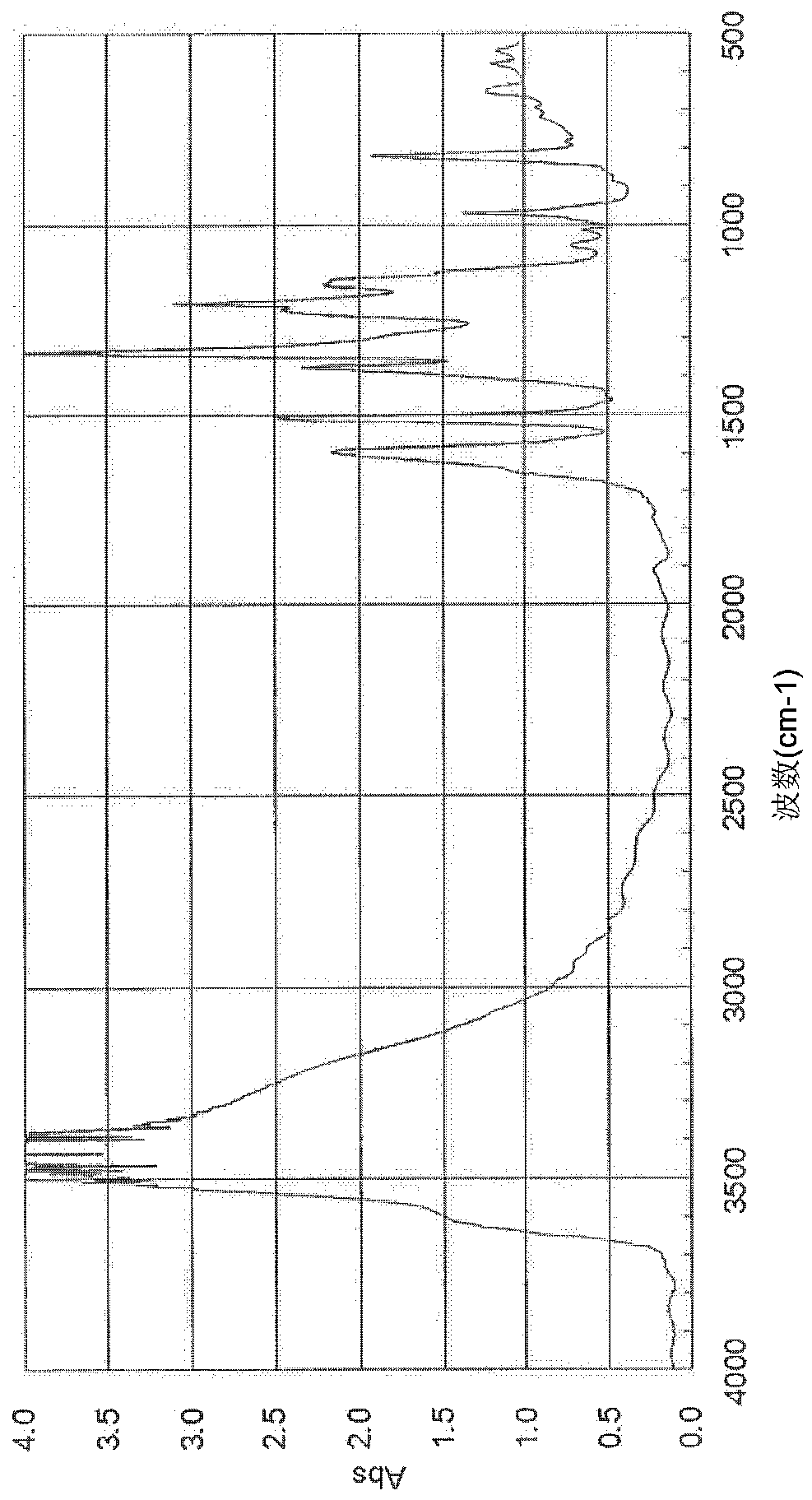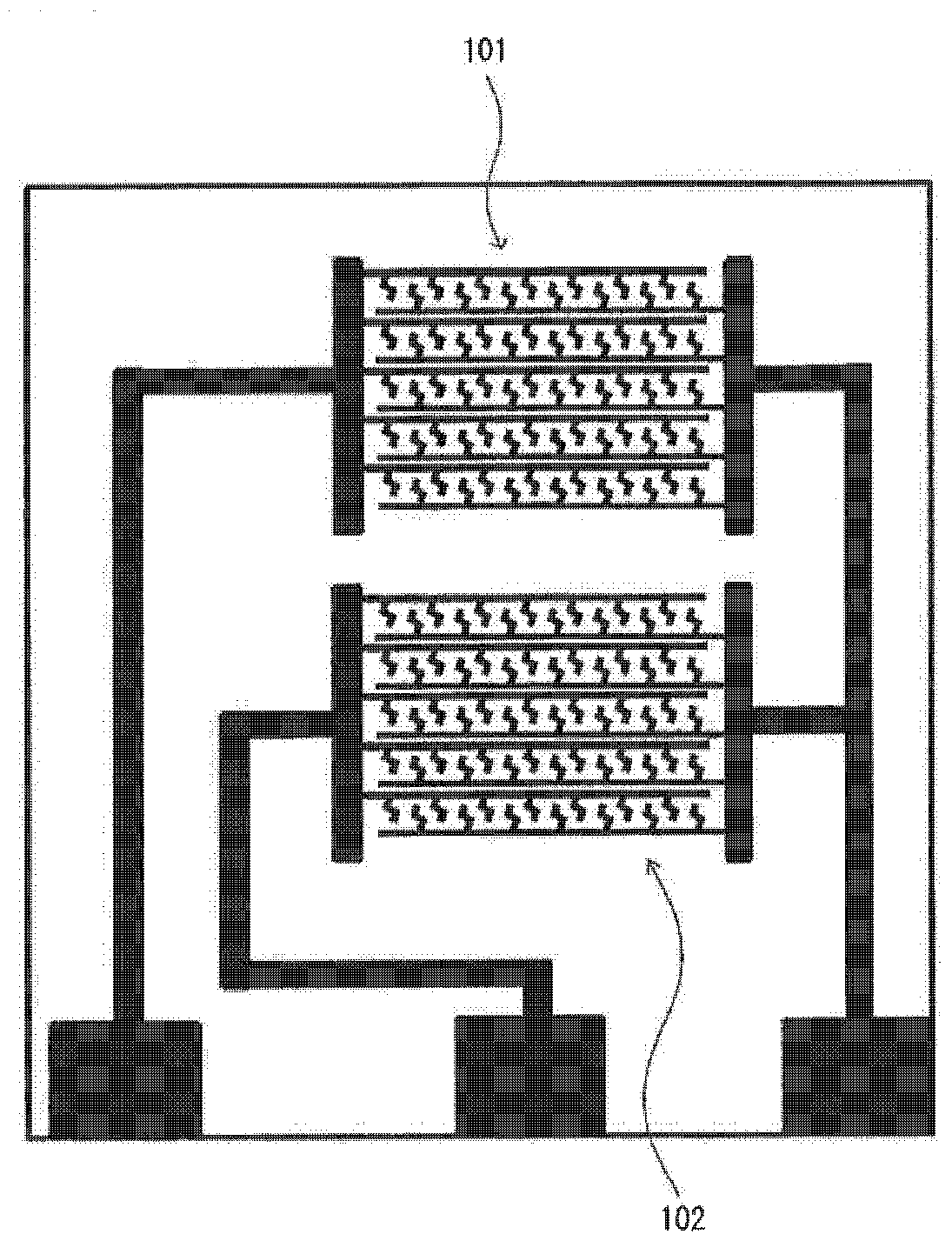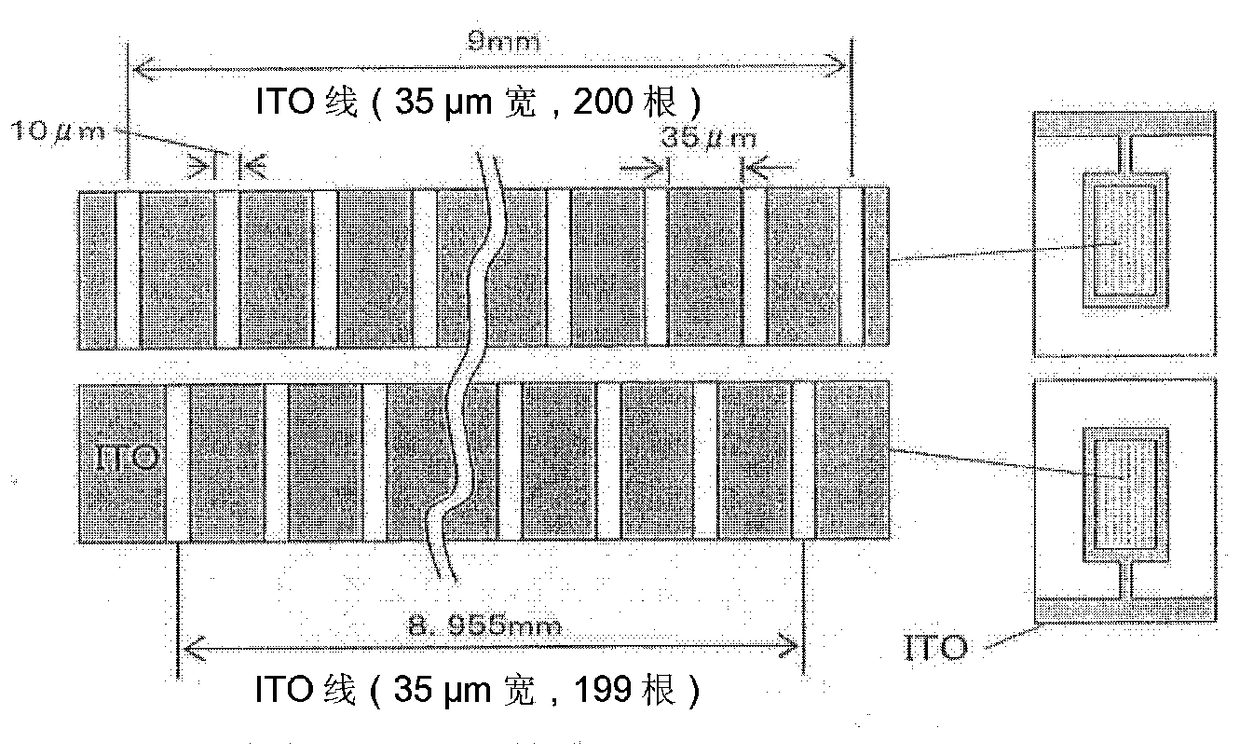Liquid crystal alignment agent and liquid crystal display element
A technology of liquid crystal display element and liquid crystal aligning agent, which is applied in the directions of liquid crystal materials, optics, instruments, etc., can solve the problems of deterioration, large light and heat tolerance, etc., and achieves reduction in manufacturing cost, excellent reliability, and voltage retention rate. The effect of falling less
- Summary
- Abstract
- Description
- Claims
- Application Information
AI Technical Summary
Problems solved by technology
Method used
Image
Examples
Embodiment
[0162]
[0163] In the following synthesis examples, the synthesis operation of each polymer was repeated as necessary on the scale described below, thereby securing the required amount of polymers in the subsequent synthesis examples.
Synthetic example 1
[0165] The inside of a 500mL three-necked flask equipped with a three-way cock (three-way cock) and a stirrer equipped with a nitrogen gas introduction tube was set as a nitrogen atmosphere, and 20.00g (0.125mol) of 2,6-dihydroxynaphthalene was added thereto. Di-μ-hydroxy-bis[(N,N,N',N'-tetramethylethylenediamine)copper(II)] 0.58g (0.125mmol) and 2-methoxyethanol 380mL and then started stirring. Then, after adding 13.7 g of 31 wt % hydrogen peroxide water over 2 hours, it reacted at 25 degreeC with stirring for 3 hours. After completion of the reaction, the reaction solution was poured into 1,000 mL of distilled water to precipitate the product. The obtained precipitate was collected by filtration and recovered, and the solvent was removed overnight at 80° C. under vacuum, thereby obtaining a gray powdery polymer (A-1) (having the following formula (A-1) polymer of the indicated repeat unit) (yield 18.76 g, 95% yield).
[0166] [chemical 8]
[0167]
[0168] The polystyr...
Synthetic example 2
[0173] According to Scheme 1 below, a polymer (polymer (A-4)) having a repeating unit represented by formula (A-4) was synthesized.
[0174] [chemical 9]
[0175]
[0176] In a 500 mL eggplant-shaped flask, after dissolving 3.80 g of sodium hydroxide in 250 g of distilled water, 6.00 g of the polymer (A-1) obtained in Synthesis Example 1 was added and dissolved, and heated at room temperature (about 25° C. ) under stirring to obtain the sodium salt of the polymer (A-1). A solution obtained by dissolving 13.8 g of allyl bromide in 30 mL of ethanol was added dropwise thereto over 30 minutes at room temperature. After completion of the dropwise addition, reaction was carried out for 12 hours at room temperature with stirring. After the reaction was completed, the suspension-like reaction solution was suction-filtered to recover a solid. After washing the obtained solid with distilled water, vacuum drying was carried out at 50° C. to obtain 7.6 g of a polymer (polymer (A-4))...
PUM
| Property | Measurement | Unit |
|---|---|---|
| viscosity | aaaaa | aaaaa |
| viscosity | aaaaa | aaaaa |
| viscosity | aaaaa | aaaaa |
Abstract
Description
Claims
Application Information
 Login to View More
Login to View More - R&D
- Intellectual Property
- Life Sciences
- Materials
- Tech Scout
- Unparalleled Data Quality
- Higher Quality Content
- 60% Fewer Hallucinations
Browse by: Latest US Patents, China's latest patents, Technical Efficacy Thesaurus, Application Domain, Technology Topic, Popular Technical Reports.
© 2025 PatSnap. All rights reserved.Legal|Privacy policy|Modern Slavery Act Transparency Statement|Sitemap|About US| Contact US: help@patsnap.com



